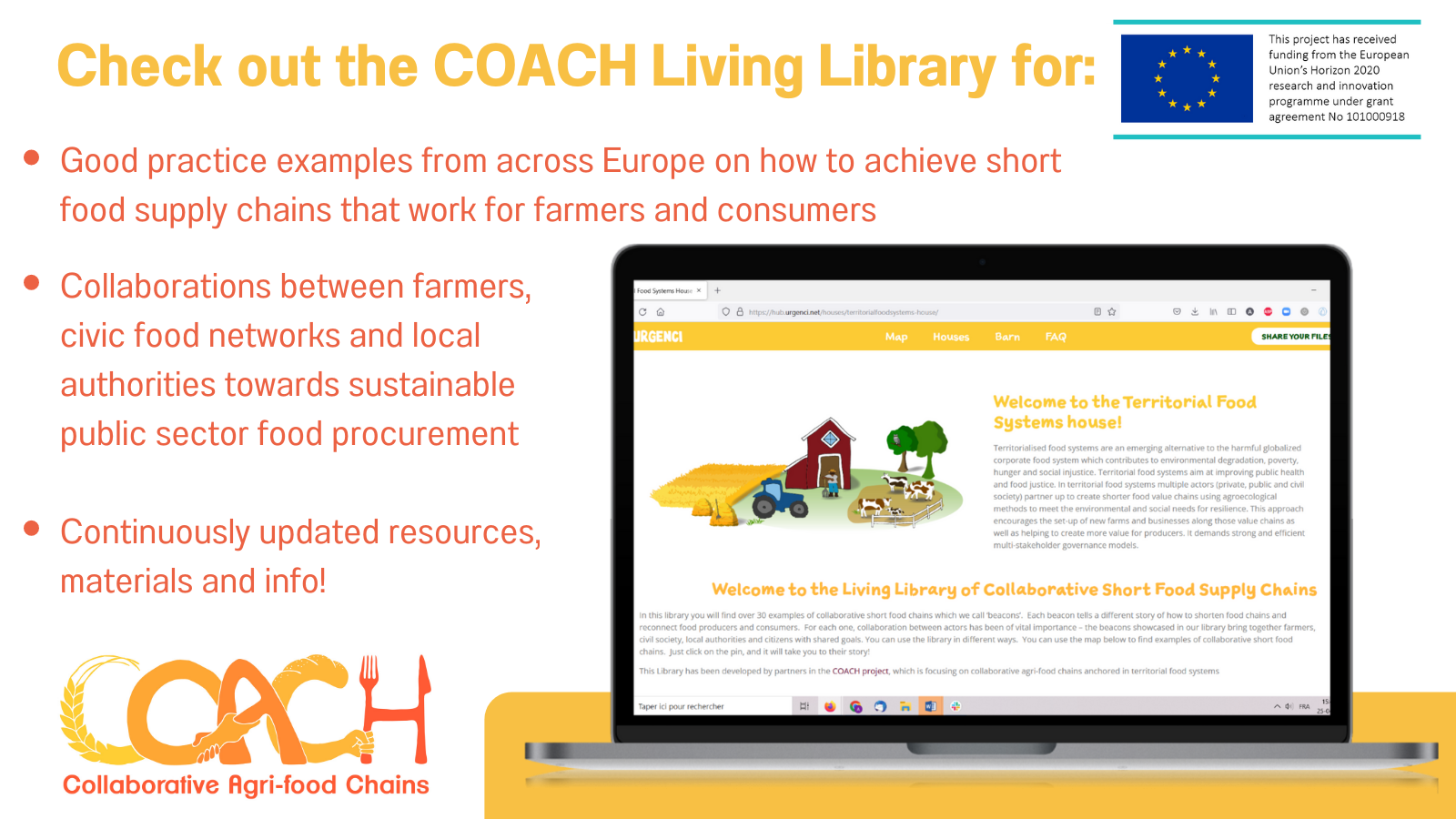A living library showcasing good-practice examples of collaborative short food chains has today been launched by a consortium of organisations, under the three-year, EU-funded COACH project. This living library includes more than 30 concrete examples of how collaboration between farmers, consumers, local governments and other actors can help to scale up short agri-food chains, in order to rebalance farmers’ position in the chain, create win-wins for producers and consumers, and drive locally led innovation in territorial food systems.
The launch of the living library and the good practice examples (known as “beacons” within the project) is an important milestone in the consortium’s efforts to drive forward short agri-food chains and facilitate knowledge and information exchange. In the coming months, additional materials will be added to the constantly evolving library, including policy briefs, scientific articles, training materials, and a Farm to Fork public procurement toolkit.
The organisations within the COACH project hope that the living library can become an invaluable information hub for farmers, civic food networks, consumers, and policymakers, in order to support the much-needed transition to local, agroecology-based food production systems across Europe.
On a European level, this kind of collaboration between different food-chain actors is essential to ensure the Farm-to-Fork Strategy includes the measures and tools needed to truly “leave no one behind”. In particular, the project’s focus on sustainable public sector food procurement could be vital to inform the legislative framework for sustainable food systems currently being developed by the EU.
Two Hungarian good-practice examples became part of the living library: the Farmer-Miller-Baker Network led by Pipacs Bakery aims to re-connect farmers, millers, bakers and researchers in Hungary to re-establish historically broken local supply chains; and The Nyíregyházi Kosár Közösség which is a civic network that links local producers with local consumers via an online platform and a physical pick-up point in the city of Nyíregyháza (north-eastern Hungary). It is a unique buying group because it was created out of citizens’ need to raise awareness about sustainable food systems and high-quality local products.
This living library as an important tool to ensure the voice of small and medium-scale farmers is listened to by policy makers. Authorities must implement public policies that prioritise the needs of food producers and consumers in order to achieve collaborative short food chains and guarantee food sovereignty.
